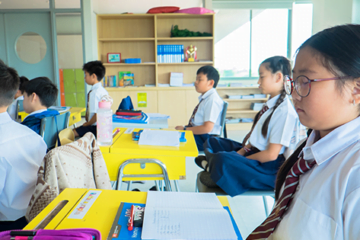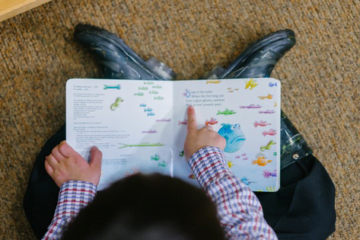In our swiftly changing landscape, conventional educational techniques fall short of adequately readying students for the dynamic challenges ahead. Primary education serves as a pivotal stage in molding youthful intellects and fostering indispensable proficiencies like teamwork, analytical reasoning, and inventive problem-solving. Novel pedagogical strategies not only captivate students but also furnish them with the competencies imperative for triumph in an ever more intricate and interconnected global milieu. As the foundation of learning, top schools in Gurgaon bear the responsibility of sculpting young minds and instilling vital attributes such as adaptability, critical thinking, and collaborative prowess. It’s imperative to embrace the innovative teaching methodology of the Primary Years Program (PYP) in IB schools that not only captivate students’ interest but also cultivate a deeper understanding of concepts and a readiness to tackle real-world challenges.
In this article, we will explore how primary schools in Gurgaon through the PYP program can facilitate innovative teaching to help children understand collaborative learning and develop a problem-solving attitude.
Developing a Culture of Collaboration
- Group Projects and Activities: Encouraging group projects and collaborative activities encourages students to work together towards a common objective, which promotes collaboration and communication skills.
- Peer-to-Peer Learning: Implementing peer-to-peer learning practices, in which students teach and learn from one another, fosters collaboration and mutual support in the classroom.
- Classroom Discussions: Facilitating open-ended classroom conversations helps students share ideas, listen to varied perspectives, and work together to solve complicated challenges.
Incorporating Real-World Problem-Solving Challenges
- Project-Based Learning: Putting students through project-based learning experiences in which they solve real-world challenges allows them to apply their knowledge and abilities in meaningful contexts
- Problem-Based Scenarios: During the primary year programme, students are presented with problem-based scenarios or case studies that require them to think critically, analyse information, and collaborate to generate innovative answers.
- Design Thinking Workshops: Students can identify problems, develop ideas, prototype solutions, and iterate depending on feedback by participating in design thinking workshops. This approach is similar to problem-solving in the real world.
Utilizing Technology as a Catalyst for Innovation
- Interactive Learning Platforms: Using interactive learning platforms and educational apps increases student engagement and allows for collaborative learning and problem-solving in virtual environments.
- Online Collaboration Tools: Introducing online collaboration tools such as Google Workspace or Microsoft Teams enables students to collaborate on projects, share resources, and communicate effectively both within and outside the classroom.
- Coding and Robotics Programs: Integrating coding and robotics programmes into the curriculum enables students to think algorithmically, solve issues methodically, and cooperate to design and build technology-based solutions.
Fostering Creativity and Critical Thinking
- Creative Expression: Reputable primary schools in Gurgaon offer possibilities for creative expression through art, music, theatre, or storytelling, which fosters imagination and encourages pupils to think beyond the box.
- Critical Inquiry: Encouraging students to ask questions, challenge assumptions, and explore alternative perspectives fosters critical thinking skills and a willingness to question and analyze information collaboratively.
- Divergent Thinking Exercises: Incorporating divergent thinking exercises, such as brainstorming sessions or mind-mapping activities, stimulates creativity and encourages students to generate a wide range of ideas collaboratively.
Emphasizing Soft Skills Development:
- Communication Skills: Offering opportunities for public speaking, group presentations, and debates helps students develop effective communication skills and articulate their ideas clearly to their peers.
- Problem-Solving Skills: Providing structured problem-solving frameworks and strategies empowers students to approach challenges systematically, collaborate with others, and persevere in finding solutions.
- Adaptability and Resilience: Creating a supportive learning environment where failure is viewed as a learning opportunity encourages students to take risks, learn from setbacks, and adapt their approach accordingly.
Encouraging Interdisciplinary Learning Experiences:
- Integration of Subjects: Integrating multiple subjects into interdisciplinary learning experiences allows students in top primary schools in Gurgaon to make connections between different areas of knowledge and apply their learning to real-world contexts.
- Project-Based Units: Designing project-based units that span multiple subjects encourages collaboration, critical thinking, and problem-solving across disciplines, preparing students for the interdisciplinary nature of modern workplaces.
- Field Trips and Guest Speakers: Organizing field trips and inviting guest speakers from diverse fields exposes students to a variety of perspectives and fosters interdisciplinary thinking and collaboration.
Innovative teaching approaches are vital for enabling collaborative learning and instilling a problem-solving attitude among school children. The Primary year programme helps prepare the next generation of leaders, innovators, and change-makers to make a meaningful influence on society by providing them with the skills, knowledge, and attitudes required to cooperate effectively and solve complex challenges.

